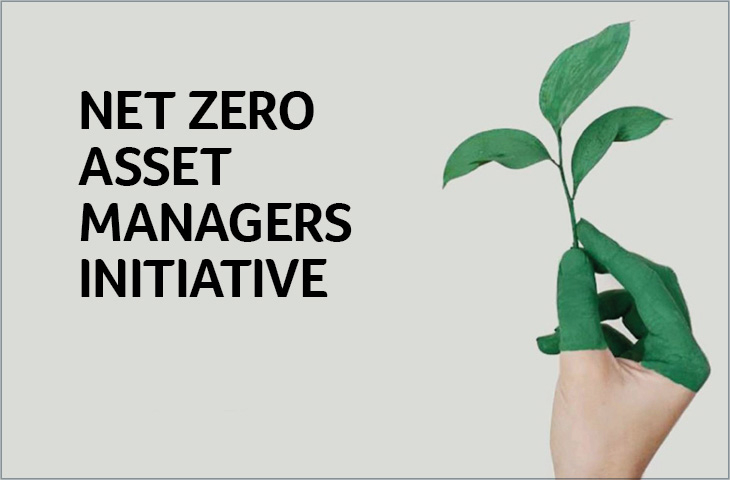The Net Zero Asset Managers (NZAM) initiative’s Target Disclosures Report 2024 highlights a significant shift in the asset manager’s approach to climate action. With 264 signatories setting individual net zero targets, the report illustrates that the financial sector is not merely adapting to change, but actively driving it.
This analysis provides a suite of insights that lie at the heart of the NZAM report, outlining strategies, commitments, and the global reach of this initiative. From decarbonization targets to engagement strategies, the Climate Insider explores how asset managers are reshaping their portfolios.
As we unpack the data, a key question emerges: Are we witnessing the tipping point for the financial sector’s commitment to climate action?
The evidence below suggests this may be the case.

Critical Mass: With 264 signatories setting individual net zero targets, the initiative has reached a scale that could trigger a domino effect across the industry.
Short-Term Urgency: The fact that 98% of signatories have set interim targets for 2030 or earlier signals a shift from long-term aspirations to immediate action.
Methodological Rigor: The adoption of science-based targets and standardized frameworks suggests a maturing approach to climate risk management.
Global Reach: With signatories from over 35 countries, the movement is truly international, though regional disparities remain.
Yet, key challenges remain. This includes:
Implementation Gap: Setting targets is one thing; achieving them is another. How will asset managers navigate the complexities of decarbonizing diverse portfolios?
Regulatory Landscape: As governments worldwide tighten climate regulations, how will this affect asset managers’ strategies and the broader financial ecosystem?
Market Forces: Will market pressures accelerate or hinder progress towards these ambitious goals?
Technological Dependencies: Can climate tech innovations keep pace with the financial sector’s growing demand for decarbonization solutions?
Engagement Efficacy: How effective will asset managers be in influencing corporate behavior through their engagement targets?
Target Types and Focus: Decarbonization, Alignment, and Engagement
The report reveals that decarbonization targets are the most prevalent among signatories, comprising 62.5% of the total. These targets focus on reducing emissions in the real economy—a crucial step for meeting global climate goals. By committing to decarbonization, asset managers direct investments toward companies and projects actively working to lower carbon emissions.
Alignment targets, accounting for 53% of the total, aim to align investment portfolios with net-zero pathways, ensuring investments support broader climate objectives.
Additionally, 23% of signatories have set engagement targets designed to influence companies and stakeholders to adopt more ambitious climate actions, thus amplifying asset managers’ role in driving industry-wide climate action.
Interim Targets and Timeline: The Sprint to 2030
A striking 98% of signatories have established interim targets for 2030 or earlier, showcasing a commitment to both immediate and long-term climate action.
This emphasis on near-term goals is highlighted by 26% of these interim targets being set for as early as 2025. Such urgency is indicative of a proactive stance on addressing climate risks and underscores the asset management industry’s commitment to driving a rapid transition to a net-zero economy.
Methodological Approaches: Diverse Pathways to Net Zero
The report outlines a range of methodological approaches being used by signatories to set their respective targets. The Paris Aligned Investment Initiative’s Net Zero Investment Framework, used by 51% of signatories, offers a structured method for aligning investments with global climate goals.
The Science Based Targets Initiative for Financial Institutions, adopted by 22% of signatories, provides science-based criteria for target setting. Another 14% of signatories use the Net Zero Asset Owner Alliance Target Setting Protocol, which focuses on specific actions and metrics for asset owners.
Notably, 10% of signatories have developed their own unique methodologies, demonstrating a tailored approach to target setting that aligns with their individual investment strategies.
Asset Classes and Regional Breakdown: Global Reach and Local Impact
The report emphasizes that listed equities and corporate fixed income are the most common asset classes in target disclosures- reflecting their significant role in investment portfolios and potential impact on climate goals. The initiative boasts a wide global reach, with signatories from over 35 countries.
- Europe leads with more than 200 signatories, suggesting a supportive policy environment.
- North America follows with over 70 signatories
- Asia with over 20.
- Oceania, South America, and Africa have fewer signatories, indicating regions ripe for increased engagement and commitment.
The Ripple Effect: Implications for Asset Managers in Climate Tech
The NZAM Target Disclosures Report 2024 marks a crucial moment for the climate tech sector and the global push toward net-zero emissions. With 62.5% of signatories focused on decarbonization, asset managers are increasingly channelling investments into clean energy, carbon capture, and other low-carbon technologies.
This influx of capital is set to drive rapid advancements in existing solutions and foster the emergence of new technologies to meet the pressing 2030 and 2025 interim targets established by 98% and 26% of signatories, respectively.
The diversity in target-setting approaches among signatories highlights the need for climate tech companies to offer adaptable solutions that align with varying frameworks. This flexibility, coupled with opportunities in underrepresented regions with fewer NZAM signatories, positions climate tech firms for significant growth and impact on a global scale.
Potential Outcomes and Challenges Moving Forward
Accelerated Innovation in Climate Tech:
Increased investment in climate technologies is likely to speed up the development and scaling of existing solutions while fostering new, innovative ones. These advances are vital for tackling the complex challenges of decarbonization. However, the rush to innovate and meet interim targets may strain resources and demand significant capital investment.
Shift in Investment Patterns:
Experts expect a major shift of capital from high-emission to low-emission industries, with more funding going to early-stage climate tech startups. This change will likely spark greater interest in green bonds and other climate-focused financial tools. While this trend creates growth opportunities in sustainable sectors, it also challenges traditional industries that might struggle to adapt to the new investment landscape.
Market Expansion for Climate Tech Companies:
The widespread adoption of climate solutions across sectors and expansion into new geographical markets—especially in regions with fewer Net Zero Asset Management (NZAM) signatories—offers significant growth potential. Climate tech companies could become key players in the global economy. However, entering new markets poses challenges, as it requires a thorough understanding of local needs and regulations.
Standardisation of Climate-Related Metrics and Reporting:
The development of more robust and universally accepted frameworks for measuring and reporting emissions will boost transparency in climate-related financial disclosures. This standardization will likely lead to more effective regulation and policy-making. However, it may also require companies to adapt to new compliance requirements, which could be resource-intensive.
Transformation of Traditional Industries:
High-emission industries face mounting pressure to adopt cleaner technologies and practices. This shift may spark new business models centered on sustainability and circular economy principles, potentially creating jobs in green sectors. However, it could also lead to job losses in carbon-intensive industries, posing a significant socioeconomic challenge.
While these actions are to be viewed as a positive, several questions remain unanswered and demand our attention:
- How will this shift in asset management priorities reshape global capital flows?
- What role will emerging markets play in this financial climate revolution?
- Could the NZAM initiative serve as a blueprint for other sectors grappling with climate change?
- What unexpected consequences – positive or negative – might arise from this rapid realignment of financial priorities?
- How will the success (or failure) of these targets impact public perception of the financial sector’s role in combating climate change?
The Net Zero Asset Managers Initiative’s Target Disclosures Report 2024 showcases the asset management industry’s growing commitment to climate action. The rise in target setting and diverse approaches signal a dynamic, rapidly advancing sector.
For climate tech companies, this presents a dual opportunity and challenge: contributing to significant global climate goals while navigating a complex landscape of investment criteria and expectations. As asset managers refine their targets and methodologies, achieving net zero emissions by 2050 remains within reach, driven by the collective efforts of the financial sector and its partners.
Among the Signatories
Affirmative Investment Management
Boston Common Asset Management
Brandywine Global Investment Management
Clean Energy Ventures Management, LLC
Close Brothers Asset Management
Columbia Threadneedle Investments
Community Capital Management, LLC
Independent Franchise Partners, LLP
Nikko Asset Management Co. Ltd.
Nomura Asset Management Co. Ltd.
Nomura Real Estate Asset Management
Norinchukin Zenkyoren Asset Management
Northtree Investment Management Ltd
Societe Generale Private Wealth Management
Sprucegrove Investment Management
Stone Harbor Investment Partners
Sumitomo Mitsui DS Asset Management Company
Sumitomo Mitsui Trust Asset Management
Veritas Investment Partners (UK) Limited
Victory Hill Capital Partners LLP
Vista Equity Partners Management, LLC
Featured Image: Credit: Net Zero Asset Managers Initiative








